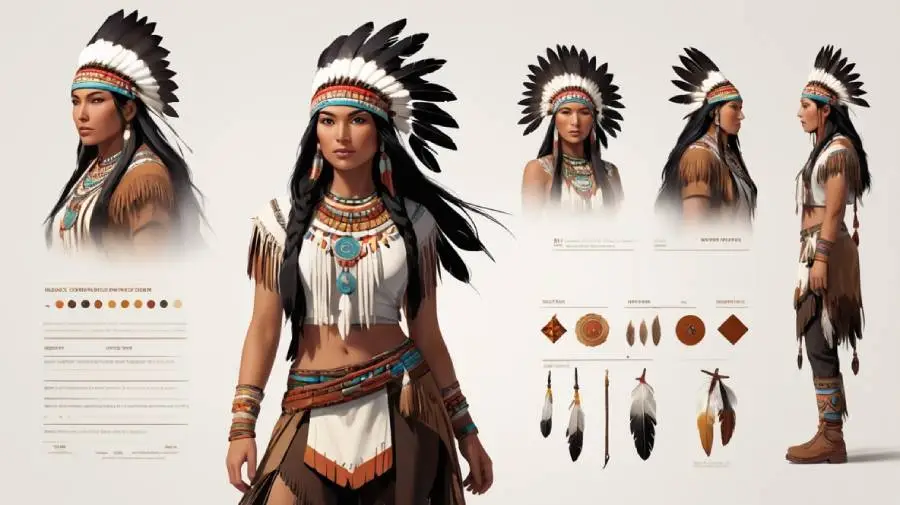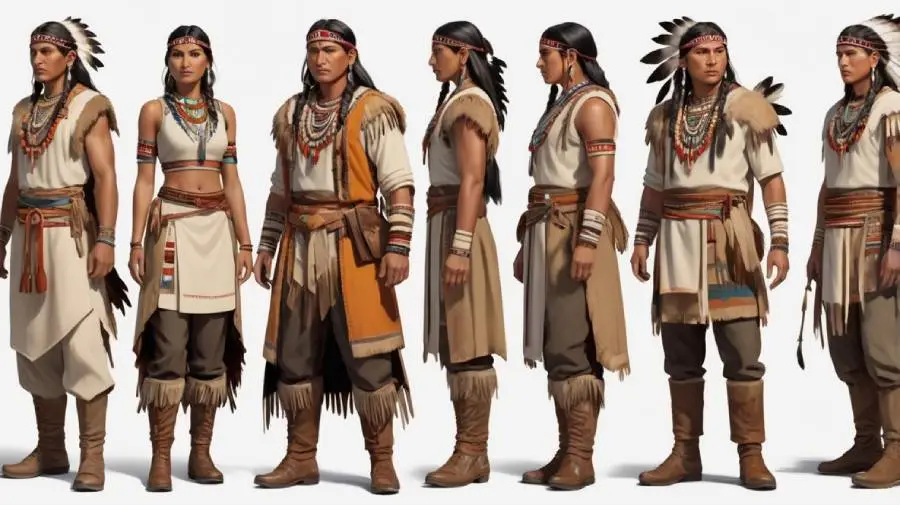Native American Heritage Month: A Time to Celebrate Indigenous Culture and Contributions
November is a special time for reflection, education, and celebration as we observe Native American Heritage Month. This month-long celebration is dedicated to honoring the rich history, diverse cultures, and significant contributions of Native Americans and Alaska Natives. Through various activities, educational programs, and community engagement, the month provides an invaluable opportunity to raise awareness about Indigenous peoples’ experiences and struggles while recognizing their pivotal role in shaping the history of the United States.
In this article, we will explore the history, significance, and current observances surrounding Native American Heritage Month, providing an in-depth understanding of why it matters and how it is celebrated.

The Origins and Establishment of Native American Heritage Month
The Early Advocacy for Recognition
The story of Native American Heritage Month begins long before it was officially recognized by the U.S. government. The roots of this observance trace back to Dr. Arthur C. Parker, a Seneca Indian, who first advocated for a national day to honor Native Americans in 1915. Dr. Parker, who was a prominent anthropologist and historian, believed that Native American culture and history deserved national recognition and respect.
From a Day to a Month of Recognition
In 1976, President Gerald Ford took a crucial step by proclaiming a week-long observance known as “American Indian Week,” celebrated in the month of October. This initial move laid the groundwork for the expansion of Native American recognition, eventually leading to the full month-long observance we have today.
Official Establishment in 1990
In 1990, President George H.W. Bush signed a joint resolution that officially declared the month of November as “National American Indian Heritage Month.” Since then, this observance has been celebrated annually, with each year focusing on different themes that highlight various aspects of Native American life and culture.
You may also like:- Veterans Day
- Day of the Dead
- International Men’s Day
- Black Friday
- All Saints’ Day
- No Shave November
- Movember
- Daylight Saving Time Ends
- All Souls’ Day
- New York City Marathon
- Iran Hostage Crisis
- Marine Corps Birthday
- World Kindness Day
- Thanksgiving Day
- Small Business Saturday
- World Toilet Day
- American Indian Heritage Day
- National Adoption Day
- America Recycles Day
Purpose and Significance of Native American Heritage Month
Cultural Awareness and Education
The primary purpose of Native American Heritage Month is to foster a deeper understanding of the diverse cultures, traditions, and histories of Indigenous peoples. It serves as a platform to educate the general public about the unique challenges faced by Native Americans throughout history and today. By learning about these experiences, we can promote respect, awareness, and empathy.
Recognizing Native Contributions to Society
This month is also a chance to acknowledge the significant contributions of Native Americans to the development of American society. From agriculture and medicine to art and governance, Native Americans have had a profound impact on shaping the cultural, political, and economic landscape of the United States.

Celebrating Indigenous Sovereignty
An important aspect of Native American Heritage Month is honoring the sovereignty of Indigenous nations. Tribal sovereignty is the right of Native American tribes to govern themselves and make decisions about their communities without interference from outside authorities. This is a vital theme for many tribes and an area of continued advocacy and progress.
How Native American Heritage Month Is Celebrated
Educational Programs and Events
One of the most common ways that Native American Heritage Month is celebrated is through educational programs. Schools, museums, libraries, and cultural organizations host events such as:
- Workshops and Seminars: These events often focus on topics like Native American history, contemporary issues, and cultural traditions.
- Art Exhibits: Many galleries showcase Native American artists and their work, offering a platform for Indigenous voices in the art world.
- Performances and Music: Traditional dance, music, and storytelling are integral to Native American cultures, and these performances are widely appreciated during the month of November.
Native American Heritage Day
In addition to the month-long celebration, November 29 is officially recognized as Native American Heritage Day. This special day encourages individuals, communities, and institutions to reflect on and celebrate the history and culture of Native Americans. On this day, people are encouraged to participate in ceremonies, share stories, and support Native American businesses.
Themes of Native American Heritage Month
The Annual Themes
Since 2002, Native American Heritage Month has featured an annual theme. These themes are designed to focus on specific aspects of Native American culture, history, or modern-day issues. For example, the theme for 2023 was “Celebrating Tribal Sovereignty and Identity,” which emphasized the importance of recognizing the self-governing authority of Indigenous tribes.
These themes help provide a framework for the observance, guiding public discussions and reflections on Native American issues.
Past Themes and Their Significance
Some past themes of Native American Heritage Month have included:
- “Native Americans in the Arts”: Celebrating the diverse artistic traditions of Indigenous communities.
- “Honoring Our Elders”: Focusing on the vital role that elders play in preserving cultural knowledge and traditions.
The Role of Government and Public Institutions
Federal Proclamations and Recognition
In recent years, Presidential Proclamations have played a significant role in highlighting Native American Heritage Month. Presidents, including Joe Biden, have reaffirmed their commitment to honoring the contributions of Native Americans and addressing the ongoing challenges faced by Tribal Nations, including issues related to healthcare, education, and land rights.
State and Local Government Engagement
State and local governments are also encouraged to host activities and programs that promote awareness and celebrate Native American heritage. These activities can include educational outreach, community festivals, and supporting Native American businesses.
Modern-Day Issues for Native Americans
Tribal Sovereignty and Self-Determination
A crucial focus of Native American Heritage Month is the recognition of tribal sovereignty. Native American tribes have long fought for their right to self-determination and governance. The importance of protecting tribal lands, preserving languages, and supporting tribal governments is at the heart of many contemporary issues facing Native communities.
Healthcare and Economic Development
Native American communities continue to face challenges related to healthcare access, economic inequality, and education. Native American Heritage Month serves as an opportunity to raise awareness about these issues and advocate for necessary reforms.
Cultural Revitalization
The revitalization of Native languages, traditions, and cultural practices is a critical ongoing effort. Native American Heritage Month highlights the resilience of Indigenous peoples and their dedication to preserving their cultures for future generations.
How You Can Participate in Native American Heritage Month
Support Native American Organizations
One of the most impactful ways to observe Native American Heritage Month is by supporting Native American organizations. Many of these organizations focus on issues such as land rights, education, and healthcare. Donating to these groups or volunteering your time can make a significant difference in the lives of Native American communities.
Learn and Share
Engage with Native American literature, films, and other forms of media to deepen your understanding of Indigenous cultures. Share what you learn with others to help spread awareness and foster greater respect for Native communities.
Native American Heritage Month is a powerful reminder of the contributions, struggles, and resilience of Indigenous peoples in the United States. By taking the time to learn about their cultures, histories, and modern-day challenges, we contribute to the ongoing efforts to honor Native American communities and ensure their voices are heard. Whether through education, cultural events, or activism, this month serves as an invitation for all of us to engage in meaningful reflection and celebration.
FAQs
1. Why is Native American Heritage Month celebrated in November?
Native American Heritage Month is celebrated in November to honor the rich histories and cultures of Native Americans. The month was officially recognized in 1990, and its timing coincides with significant historical events, including the signing of treaties between Native nations and the U.S. government.
2. What are some ways to celebrate Native American Heritage Month?
You can celebrate by attending cultural events, supporting Native American businesses, reading Native American authors, and learning about Indigenous history and modern-day issues.
3. What is the theme for Native American Heritage Month 2023?
The theme for Native American Heritage Month 2023 is “Celebrating Tribal Sovereignty and Identity”. This theme highlights the importance of recognizing the sovereignty and self-governance of Native American tribes.
4. How can I support Native American communities during this month?
You can support Native American communities by donating to Indigenous organizations, attending cultural events, purchasing from Native American artisans, and amplifying Native American voices in conversations about social justice.
5. What is the significance of Native American Heritage Day?
Native American Heritage Day is observed on November 29 and encourages individuals and communities to participate in activities that honor Native American culture, history, and contributions.


